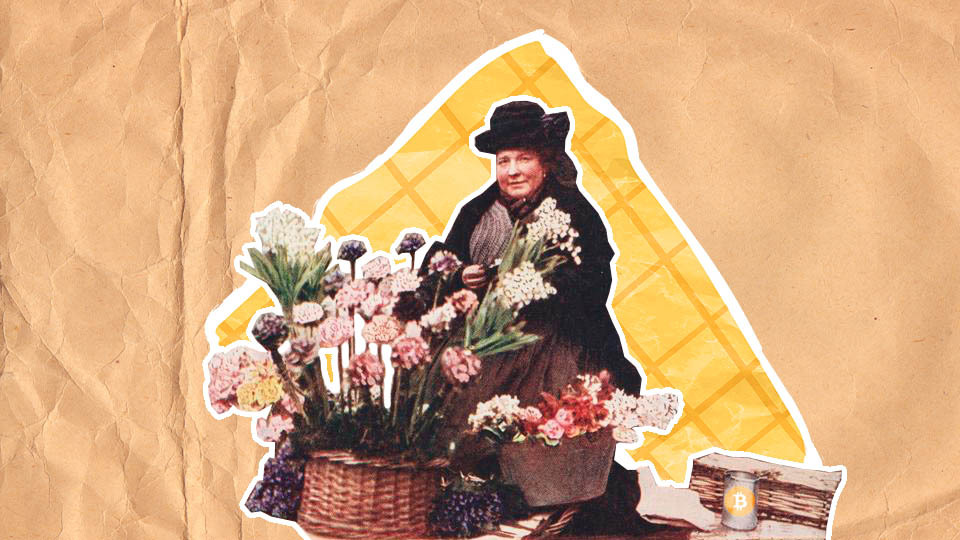
- In 2014, the city of The Hague established a Bitcoin boulevard, where businesses on two streets would accept Bitcoin.
- The banking system and digital payment infrastructures in the Netherlands are well implemented.
- Merchant awareness of Bitcoin has grown since 2014, with many businesses already owning and using Bitcoin.
As the price of 1 BTC reached $1000, 2014 was the year the financial and tech industry saw Bitcoin as a possible contender to challenge the centralized economic systems. Research institutes such as MIT, and cities like The Hague and Arnhem, in the Netherlands, created social tests to encourage the use of Bitcoin as a form of currency. Whether it was a PR move, or a way to draw attention, Bitcoin had its chance to prove that it could function as a digital currency.
The Possibility of Bitcoin Payments In The Netherlands
In an interview with DailyCoin, Patrick van der Meijde, co-founder of BitKassa, and Arnhem Bitcoin City, emphasized that merchants in 2021 are far more aware of Bitcoin as a form of payment than they were in 2014. While in 2014, news about Bitcoin appeared as a silk road and in its illegal usage; now, according to Van der Meijde, some merchants already own Bitcoin.
"Now, it is a completely different scenario than in 2014. Some of the merchants we talk to have Bitcoin already or ask about it for curiosity."
Bitcoin’s high volatility is an atypical feature of financial products, especially currency.Bitcoin is often compared to Gold because of its use as a store of value and its scarcity properties. Nonetheless, Van der Meijde mentioned that he started to use Bitcoin for his groceries in Arnhem, however most people still hold it, because the cryptocurrency is a store of value:
Sponsored
"Most people who are into Bitcoin are mainly into it because they want to make more euros out of it. The more you learn about it, the more you understand that you don't want more euros. "
"I started to use BTC for my groceries because I did not need euros to pay for them, and I could pay in BTC. So even my grocery money is gaining wealth when they are in my wallet."
Still, the number of people using Bitcoin in the Netherlands is limited to “Bitcoin enthusiasts and technical people,” according to Van der Meijde. Therefore, Arnhem Bitcoin City is more of a showcase to illustrate that Bitcoin can indeed work and operate in society as a form of payment.
But using Bitcoin in the Netherlands is not that stipulating. According to Patrick, the bank card payment infrastructure in the Netherlands is well versed in society’s habits.
"Here in the Netherlands, it's easy to pay with your bank card. You don't have to put it into the terminal. Instead, you simply swipe it past the terminal."
On The Flipside
- Bitcoin is still used by western customers for the purposes of speculation, especially among U.S. citizens and institutional investors.
- 2014’s Bitcoin Boulevard in The Hague is no longer active, as ATMs were stolen, and operators received warnings for not being registered with the appropriate regulatory authority.
Van der Meijde notes that “it’s hard to compete” with the current card payment infrastructure in the Netherlands, highlighting that neither the Netherlands, nor any other country that includes people in their financial system, will embrace Bitcoin payments, instead, according to him:
Sponsored
"It will most likely be in countries where financial systems are less developed than in the Netherlands because we have such a good-paying system here in Holland."
What’s striking is that a Finder’s survey revealed Asian countries as being the highest crypto adopters in the world. Still, enterprise franchises such as Spar, and dutch food delivery platform Thuisbezorgd, otherwise known as “Just Eat” have adopted Bitcoin as a form of payment.
Despite a mass information exodus regarding Bitcoin, and merchants being open to Bitcoin payments, not a lot has changed in the Dutch society regarding spending Bitcoin. However, Van der Meijde believes that more companies accepting, or storing Bitcoin will “eventually lead to more P2P payment to be done in bitcoin.”
When asked whether if Bitcoin as a store of value would hurt cryptocurrencies and hinder them from performing currency functions, Patrick noted:
"Payments and store of value are both helping Bitcoin grow. It's not going to hurt it, but it would be better if they also use it for payments as it will become easier to exchange Bitcoin with one another when everyone knows and holds Bitcoin."
Why You Should Care?
While Bitcoin can be used as a form of payment, society, and those holding Bitcoin, need to be willing to transact it to increase P2P transaction volumes. While one challenge is the regulation of and uncertainty around crypto, a more significant challenge is our unwillingness to change our spending habits.
